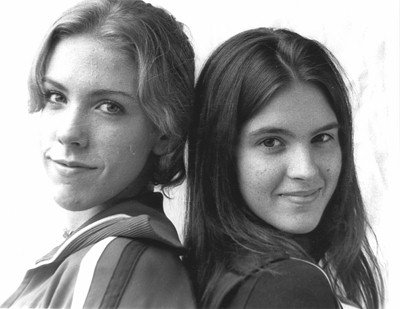All Nonfiction
- Bullying
- Books
- Academic
- Author Interviews
- Celebrity interviews
- College Articles
- College Essays
- Educator of the Year
- Heroes
- Interviews
- Memoir
- Personal Experience
- Sports
- Travel & Culture
All Opinions
- Bullying
- Current Events / Politics
- Discrimination
- Drugs / Alcohol / Smoking
- Entertainment / Celebrities
- Environment
- Love / Relationships
- Movies / Music / TV
- Pop Culture / Trends
- School / College
- Social Issues / Civics
- Spirituality / Religion
- Sports / Hobbies
All Hot Topics
- Bullying
- Community Service
- Environment
- Health
- Letters to the Editor
- Pride & Prejudice
- What Matters
- Back
Summer Guide
- Program Links
- Program Reviews
- Back
College Guide
- College Links
- College Reviews
- College Essays
- College Articles
- Back
Notes from a Male Feminist
When Phyllis Schlafly died early this September, I was shocked. I’d first learned about Schlafly in an American History class, and though I knew she was a conservative activist who led the opposition against the Equal Rights Amendment, it had never occurred to me she might still be alive. She seemed like someone of another era, one in which women marched in long, white dresses or burned their bras or chained themselves to the fronts of government buildings in protest. In my mind, Schlafly was a relic from a chapter in history where Americans were less evolved as a society and less enlightened as individuals. None of it seemed especially relevant to my life; it was just history.
In 1982 when the Equal Rights Amendment was officially declared dead, my mother would have been 16 (the same age I am now). The ERA had, in one form or another, been in the works since the early 1920s, but as it actually approached ratification in the late 1970s, Schlafly mobilized an opposition based on the premise that equal rights for women would challenge, and thus threaten, traditional gender roles. Schlafly and her supporters warned that ratification of ERA would mean a loss of protection for women. They would not be automatically assured alimony or custody in divorces, and in times of war, women would no longer be ineligible for the draft. In short, it was a campaign based on fear, and it was effective. As shocking as it sounds, to this day, there exists nowhere in the United States Constitution or any of its twenty-seven amendments a guarantee of equal rights for women. And the truth is that up until a few months ago, I didn’t think we needed one.
While I had always heard about unequal pay for women or underrepresentation in positions of power, I’d never thought there was a constitutional basis for the noise. After all, the girls in my school are as smart, and as outspoken and opinionated as the boys. In my mind, compared to other minority groups of Americans, “women,” as a subgroup, seemed somehow less marginalized. But in light of the current presidential campaign, I can no longer say with anything even resembling a straight face that, in 2016, women have equal rights. Not even close.
While I am shocked and horrified by the blatant displays of misogyny in this election cycle, I am baffled by the plain and simple unfairness of it. How, in this supposedly enlightened age, is there an election in which a woman who has devoted her entire life to public service and is in every way a genuinely qualified candidate pitted for the presidency against a fear-mongering racist who most know from reality television? It’s even a choice?
It would be hard not to blame Phyllis Schafley. It might be idealistic to imagine that passage of the ERA would have granted equal treatment in the workplace, equal opportunity for advancement, and equal representation in government. But it’s also hard to imagine that if the ERA had passed thirty years ago, we would be in the mess that we’re in today. We shouldn’t be shocked that this election is not playing out on an even field: Our country has never judged women and men on an equal playing field because, as a country, we have simply not been held accountable when we do otherwise. Why should we? The defeat of the ERA in 1982 legitimized unequal rights for women as a part of the constitution.
The most significant takeaway for me has not so much to do with Schlafly or even with the ERA, but with how the ERA was defeated. Fear has always been a powerful motivator for Americans, particularly in the voting booth. Back in the late 1970s, Phyllis Schlafly convinced anti-ERA supporters that giving women equal rights would somehow jeopardize their way of life, much the way Trump talks today about undocumented immigrants or Syrian refugees. Fear, it seems, is the greatest obstacle America faces in terms of progress. And I think we all need to take a long hard look at what fear-based voting has gotten our country in the past and then do every single thing we can within our power to prevent it from happening again.

Similar Articles
JOIN THE DISCUSSION
This article has 1 comment.

As a boy with a strong mother and sister, I have grown up taking for granted the fact that males and females are "equal." This election cycle has highlighted for me, however, the many ways in which so many people do not give girls and women the same opportunities, respect and treatment that they do boys and men. Many people have also been suprised to hear that women still do not have "equal rights" granted to them by the Constitution. This article was my attempt to shed some light on the history of this predicament.